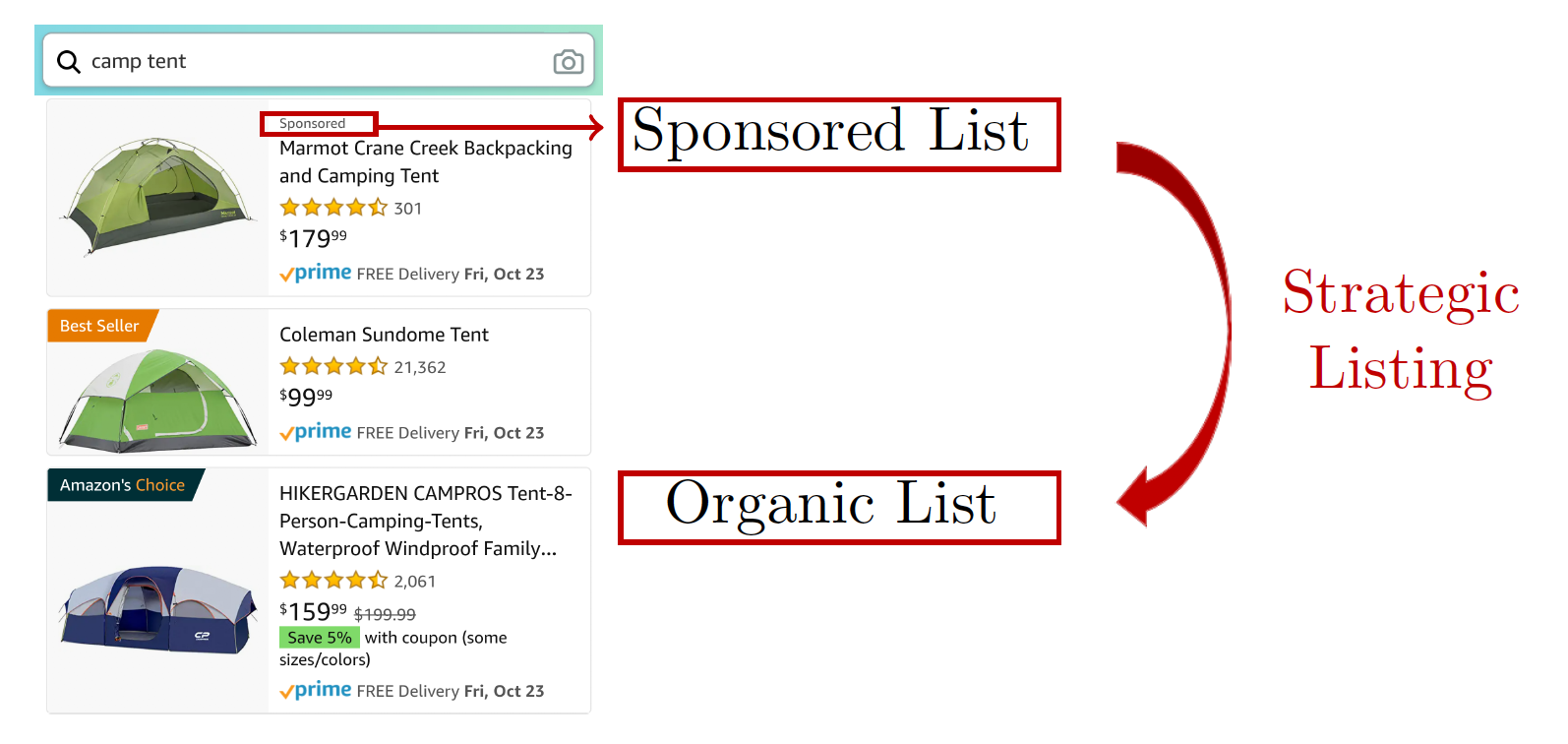Talk now available! Link to recording on YouTube

Title: Leveraging information from sponsored advertising at online retail marketplaces
Talk Abstract:
E-commerce platforms, such as Amazon and Alibaba, enable hundreds of millions of consumers to search and purchase products offered by millions of independent sellers who can advertise their products on the platforms. In this paper, we study how to design such a marketplace when there are two types of asymmetric information — sellers have some private information about their products that the platform does not have, whereas the platform has private information about consumers that the sellers do not have. Using a game theory model, we formulate the marketplace design problem as maximizing marketplace profit (comprised of ad revenues and sales commissions) by jointly considering the following elements: ensuring sellers join the platform, specifying the auction that enables sellers to advertise in the sponsored list, leveraging the information revealed in the ad auction to refine the organic list, and setting the commission rate on sales to consumers who are rational and heterogeneous in their preferences. We show that sellers’ bids in ad auctions, through which sponsored slots are allocated, can reveal the sellers’ private information to the platform (“information effect”), which it can optimally combine with information that it has about consumers to improve the placement of organic results, a practice we call “strategic listing.” However, by introducing an externality between the sponsored and organic sides, strategic listing also leads to more competition in the ad auction (“competition effect”), thus reducing the incentive of sellers to join the platform. The platform can incentivize sellers to join by reducing the commission rate on sales; however, under certain conditions, the platform must also reduce the degree of strategic listing (i.e., commit to limiting the influence of the sponsored ad auction outcomes on the placement of organic results). If the sellers’ participation is sufficiently difficult to induce, the platform obtains a larger proportion (under some conditions, all) of its revenue from advertising than from sales commissions. Our results shed light on the variation in practices across different platforms and provide timely guidance for platforms to refine their marketplace design.
Date and Time:
The talk was on Tuesday, Dec 8th at 2:00PM PST. (9:00 PM UTC)
Zoom info:
https://stitchfix.zoom.us/s/92891444308?pwd=YU1ZZk1CR2RTd0dROW9GUVlCN0Jpdz09 Passcode: 655036
Speaker Info:
Fei Long is an assistant professor of Marketing at UNC and has an PhD in business from Columbia Business School.
Fei Long’s research interests lie in understanding important and emerging phenomena in marketing, typically those driven by the digital economy. She uses both theoretical modeling and data-driven approaches.
She studies digital advertising and e-commerce platforms, and problems at their intersection. She also is interested in topics in agency theory and salesforce compensation.
As a research intern with Hewlett-Packard/Columbia University in Palo Alto, she helped develop a unified big-data framework for pricing, customer segmentation, new product introduction and competitive analysis. She also worked as a quantitative researcher in finance industry, where she applied machine learning to predict loan default rates on a peer-to-peer lending platform.
